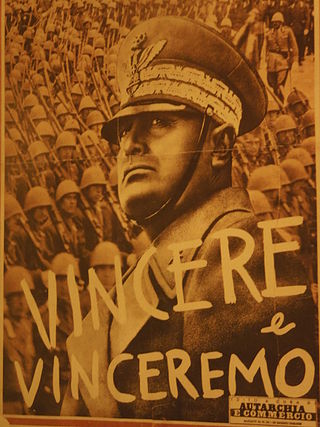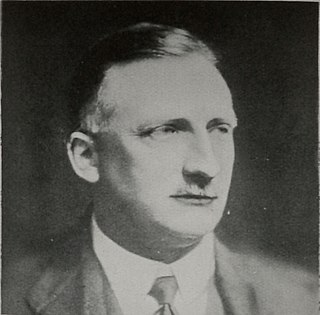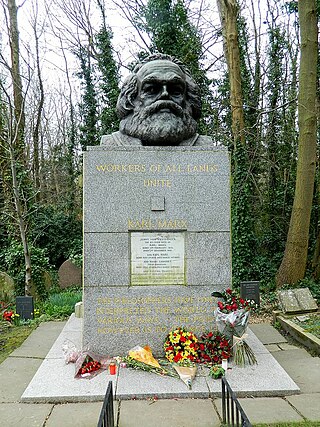Related Research Articles

The British Union of Fascists (BUF) was a British fascist political party formed in 1932 by Oswald Mosley. Mosley changed its name to the British Union of Fascists and National Socialists in 1936 and, in 1937, to the British Union. In 1939, following the start of the Second World War, the party was proscribed by the British government and in 1940 it was disbanded.

The Independent Labour Party (ILP) was a British political party of the left, established in 1893 at a conference in Bradford, after local and national dissatisfaction with the Liberals' apparent reluctance to endorse working-class candidates. A sitting independent MP and prominent union organiser, Keir Hardie, became its first chairman.

The White Defence League (WDL) was a British neo-Nazi political party. Using the provocative marching techniques popularised by Oswald Mosley, its members included John Tyndall.

Arnold Spencer Leese was a British fascist politician. Leese was initially prominent as a veterinary expert on camels. A virulent anti-Semite, he led his own fascist movement, the Imperial Fascist League, and was a prolific author and publisher of polemics both before and after the Second World War.
The Third Position is a set of neo-fascist political ideologies that were first described in Western Europe following the Second World War. Developed in the context of the Cold War, it developed its name through the claim that it represented a third position between the capitalism of the Western Bloc and the communism of the Eastern Bloc.
The British Workers League was a 'patriotic labour' group which was anti-socialist and pro-British Empire. Founded originally as the Socialist National Defence Committee, the league operated from May 1916 to 1927.
The Middle Classes Union was founded in February 1919 to safeguard property after the Reform Act 1918 had increased the number of working-class people eligible to vote. Sir George Ranken Askwith and Conservative MP and Irish landowner J. R. Pretyman Newman were both members.

The history of fascist ideology is long and it draws on many sources. Fascists took inspiration from sources as ancient as the Spartans for their focus on racial purity and their emphasis on rule by an elite minority. Fascism has also been connected to the ideals of Plato, though there are key differences between the two. Fascism styled itself as the ideological successor to Rome, particularly the Roman Empire. From the same era, Georg Wilhelm Friedrich Hegel's view on the absolute authority of the state also strongly influenced fascist thinking. The French Revolution was a major influence insofar as the Nazis saw themselves as fighting back against many of the ideas which it brought to prominence, especially liberalism, liberal democracy and racial equality, whereas on the other hand, fascism drew heavily on the revolutionary ideal of nationalism. The prejudice of a "high and noble" Aryan culture as opposed to a "parasitic" Semitic culture was core to Nazi racial views, while other early forms of fascism concerned themselves with non-racialized conceptions of the nation.
The British Commonwealth Union (BCU) was a protectionist organisation formed in the United Kingdom in 1916 to "found a solid business group in parliament" and to "press for the protective tariffs and restrictions on imports discussed at the Paris Economic Conference of 1916 and in the Balfour of Burleigh Committee on post-World War I commercial policy." Conservative Patrick Hannon was a key figure.

Robert Byron Drury Blakeney, generally known as R. B. D. Blakeney, was a British Army officer and fascist politician. After a career with the Royal Engineers, Blakeney went on to serve as President of the British Fascists.

Lieutenant-Colonel Graham Seton Hutchison was a British First World War army officer, military theorist, author of both adventure novels and non-fiction works and fascist activist. Seton Hutchison became a celebrated figure in military circles for his tactical innovations during the First World War but would later become associated with a series of fringe fascist movements which failed to capture much support even by the standards of the far right in Britain in the interbellum period. He made a contribution to First World War fiction with his espionage novel, The W Plan.
British fascism is the form of fascism which is promoted by some political parties and movements in the United Kingdom. It is based on British ultranationalism and imperialism and had aspects of Italian fascism and Nazism both before and after World War II.
The Scottish Democratic Fascist Party (SDFP) or Scottish Fascist Democratic Party was a political party in Scotland. It was founded in 1933 out of the Scottish section of the New Party by William Weir Gilmour and Major Hume Sleigh.
Neil Lanfear Maclean Francis Hawkins was a British writer and politician who was a leading proponent of British fascism in the United Kingdom both before and after the Second World War. He played a leading role in the British Union of Fascists and controlled the organisational structure of the movement.

The British Fascists was the first political organisation in the United Kingdom to claim the label of fascism, formed in 1923. The group had lacked much ideological unity apart from anti-socialism for most of its existence, and was strongly associated with British conservatism. William Joyce, Neil Francis Hawkins, Maxwell Knight and Arnold Leese were amongst those to have passed through the movement as members and activists.

Socialism in the United Kingdom is thought to stretch back to the 19th century from roots arising in the English Civil War. Notions of socialism in Great Britain have taken many different forms from the utopian philanthropism of Robert Owen through to the reformist electoral project enshrined in the Labour Party that was founded in 1900 and nationalised a fifth of the British economy in the late 1940s.

Anti-fascism is a political movement in opposition to fascist ideologies, groups and individuals. Beginning in European countries in the 1920s, it was at its most significant shortly before and during World War II, where the Axis powers were opposed by many countries forming the Allies of World War II and dozens of resistance movements worldwide. Anti-fascism has been an element of movements across the political spectrum and holding many different political positions such as anarchism, communism, pacifism, republicanism, social democracy, socialism and syndicalism as well as centrist, conservative, liberal and nationalist viewpoints.
The Militant Christian Patriots (MCP) were a short-lived but influential anti-Semitic organisation active in the United Kingdom immediately prior to the Second World War. It played a central role in the ultimately unsuccessful attempts to keep the UK out of any European war.

Far-left politics in the United Kingdom have existed since at least the 1840s, with the formation of various organisations following ideologies such as Marxism, revolutionary socialism, communism, anarchism and syndicalism.
References
- 1 2 3 4 5 6 7 8 Peter Barberis, John McHugh, Mike Tyldesley, Encyclopedia of British and Irish Political Organizations: Parties, Groups and Movements of the 20th century, Continuum International Publishing Group, 2000, p. 319
- ↑ Holman, Bob (2010). Keir Hardie Labour's Greatest Hero. Oxford: Lion Books. p. 160. ISBN 9780745953540.
- ↑ Markku Ruotsila, British and American Anticommunism Before the Cold War, Routledge, 2001, p. 8
- ↑ Thomas Linehan, British Fascism 1918-39: Parties, Ideology and Culture, Manchester University Press, 2000, p. 45
- ↑ Stephen Dorril, Blackshirt: Sir Oswald Mosley & British Fascism, Penguin Books, 2007, p. 196
- ↑ Julie V. Gottlieb, Feminine Fascism: Women in Britain's Fascist Movement, I.B.Tauris, 2003, p. 346
- 1 2 Thomas P. Linehan, British Fascism, 1918-39: Parties, Ideology and Culture, Manchester University Press, 2000, p. 46
- ↑ Richard Griffiths, Fellow Travellers on the Right, Oxford University Press, 1983, p. 225